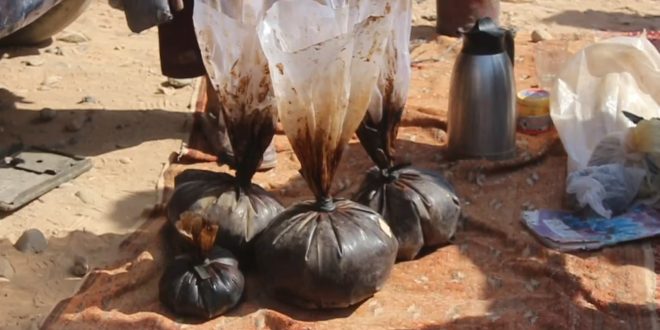AT News
KABUL – Despite the Taliban’s ban on illicit narcotics, opium markets thrive in regions like Kandahar and Helmand. The Taliban outlawed the cultivation, production, and trafficking of drugs in April 2022, but locals in these provinces claim opium sales continue uninterrupted.
According to a report by RFE/RL’s Radio Azadi, drug traffickers have stocked up on opium prior to the ban, capitalizing on its scarcity to sell at inflated prices. The report quotes an ex-anti-narcotics official, Syed Najibullah Ahmadi, as saying that traffickers are profiting immensely from the stockpiles, selling opium at several times its original price.
Meanwhile, experts point to the Taliban’s involvement in taxing narcotics producers and facilitating drug trafficking to neighboring countries, eventually reaching Europe and North America. While the Taliban asserts a reduction in opium production, this assertion is met with skepticism. The country, however, has emerged as a significant supplier of other illicit substances like crystal meth. The continuation of the narcotics trade calls into question the Taliban’s commitment to eradicating drug-related activities.
The global community has long prioritized curbing Afghanistan’s status as a major narcotics producer. In late July, the U.S. State Department expressed deep concerns over ongoing trafficking and sale of opiates and synthetic drugs during discussions with Taliban officials.
The Taliban’s struggle lies in appeasing poppy farmers who rely on opium cultivation for their livelihoods. A farmer from Badakhshan province revealed that destroying their crops necessitates the provision of alternative means of sustenance, such as wheat, fertilizer, or financial support.
As the opium trade persists despite the ban, the Taliban government faces not only international scrutiny but also internal pressures from farmers seeking viable economic alternatives.
 Afghanistan Times
Afghanistan Times




